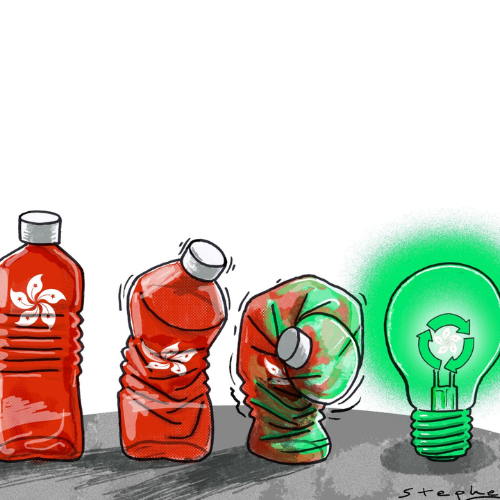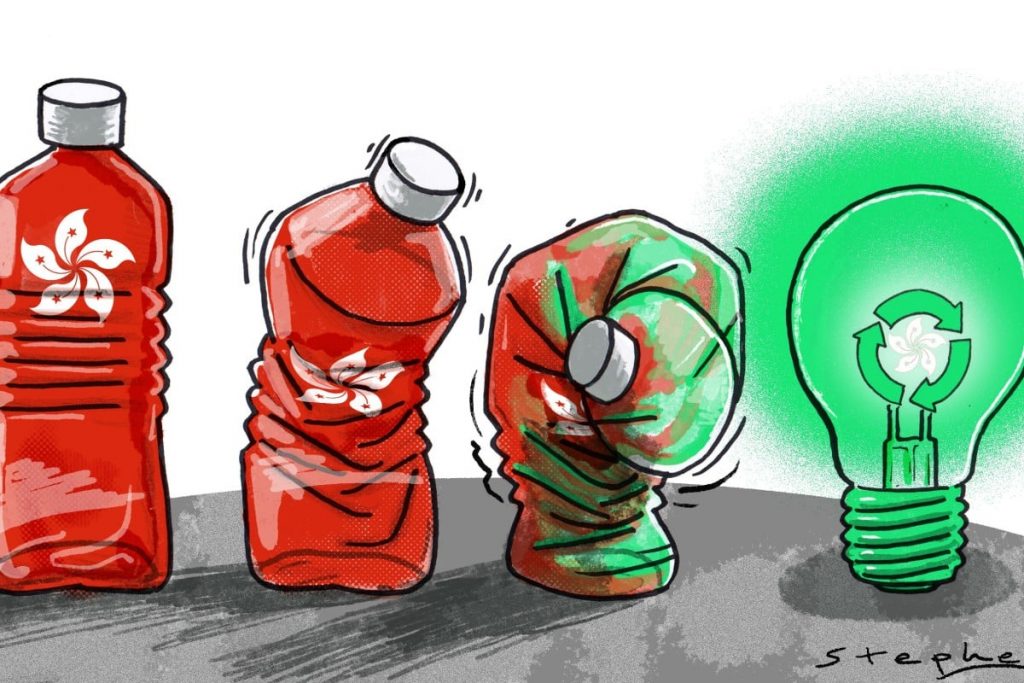Plastic waste is a unique problem for Hong Kong. It is not about the low recycling rate which, at just 14 per cent, is better than the 9 per cent world average but still far below what we need. It is not the finite capacity of landfills, or the plastic particles we consume in our air, water and seafood.
The problem is that Hong Kong’s plastic waste is kept out of sight and out of mind. Waste management is so effective we hardly think about it. This is not to say that used plastic is collected, sorted and recycled optimally. It certainly is not.
Out of sight may be nice in our daily lives. But out of mind is an obstacle to innovation, which is premised on solving problems. A lack of understanding of global problems, and more perniciously, a lack of interest, is a mindset problem. Solving it requires breaking out of the parochialism that has plagued Hong Kong in recent years.
Domestic challenges like affordable housing, mental health and economic diversification warrant attention and resources. But to become a globally relevant innovation and technology hub, a wider perspective is needed, beyond an emphasis on property development for technology-related facilities and cliched slogans about “inno-everything”.
Financial Secretary Paul Chan Mo-po’s proposal to establish an international green technology finance centre, announced in his 2023-34 budget, can be part of this broader vision, though it should not be too focused on financial engineering schemes like carbon credits.
Practically addressing the scourge of plastic waste offers technology-driven opportunities in each of the four strategic industries outlined by the new Office for Attracting Strategic Enterprises. These are: life and health technology; artificial intelligence and data science; financial technology; and advanced manufacturing and new-energy technology.
For example, in life and health technology, Germany-based Wasser 3.0 is working to remove microplastics from municipal drinking water. In fintech, the Plastic Bank, operating in the Philippines, Indonesia, Brazil and Egypt, has pioneered social plastic credits.
Artificial intelligence and data science are becoming essential tools in the processing of recycled plastic. UK-based Topolytics uses big data to map the movement of plastics, while Lebanon-based Diwama uses AI-assisted imaging in waste-sorting.


























